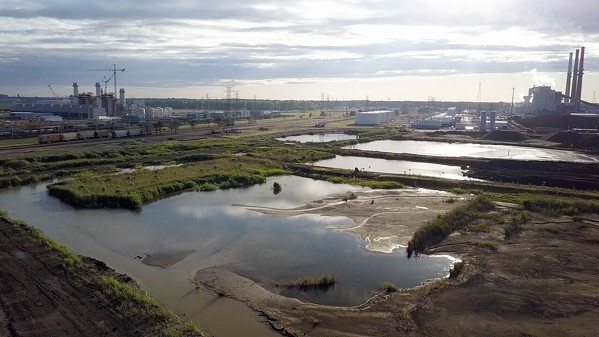
A statewide panel appointed recently by Tennessee Governor Bill Haslam will develop a new plan for the future of Tennessee’s water supply.
Haslam announced the the steering committee Thursday. It includes “leaders from federal, state and local governments, industry, academia, environmental advocacy groups and public utilities.”
Locally, the committee includes Memphis Mayor Jim Strickland and Col. Michael A. Ellicott, Jr., commander, U.S. Army Corps. of Engineers Memphis District.
Together, the committee will form “TN H2O,” a plan to include “an assessment of current water resources and recommendations to help ensure Tennessee has an abundance of water resources to support future population and economic growth.”
“Abundant, clean water has been a strategic advantage for Tennessee and is critical to our quality of life,” Haslam said in a news release. “We need to ensure this critical natural resource is managed appropriately as our state continues to grow and prosper.”
[pullquote-1]The development of the committee was spurred by recent concerns over the use of the Memphis Sand Aquifer, the source of the city’s drinking water, to cool a new Tennessee Valley Authority energy plant. 
TVA is replacing the Allen coal plant (above) with a new gas plant, and they’re looking at drilling wells into the Memphis Sand aquifer to cool that new plant.
Also, Haslam said a plan is needed to address recent droughts, “failures of wastewater and drinking water infrastructure, interstate battles over water rights,” and the fact that the state’s population is set to double in the next 50 years.
TN H2O will focus on surface and groundwater, water and wastewater infrastructure, water reuse and land conservation, as well as institutional and legal framework around water issues.
Experts in focused working groups will conduct research and gather information. The Tennessee Department of Environment and Conservation (TDEC) will oversee the development of TN H2O.
The plan is set to be available for public input by October 2018.
The steering committee includes:
Jim Henry, Deputy to the Governor, state of Tennessee
Randy McNally, Lieutenant Governor, state of Tennessee
Beth Harwell, Speaker of the House of Representatives, state of Tennessee
Dr. John Dreyzehner, Commissioner, Tennessee Department of Health
Bob Martineau, Commissioner, Tennessee Department of Environment and Conservation
Bob Rolfe, Commissioner, Tennessee Department of Economic and Community Development
Jai Templeton, Commissioner, Tennessee Department of Agriculture
Kevin Triplett, Commissioner, Tennessee Department of Tourism
Ed Carter, Executive Director, Tennessee Wildlife Resources Agency
Dr. Shari Meghreblian, Deputy Commissioner, Tennessee Department of Environment and Conservation
Dr. Ken Moore, Mayor, city of Franklin
Jim Strickland, Mayor, city of Memphis
Dr. Philip Oldham, President, Tennessee Technological University
Jerri S. Bryant, Chancellor, 10th Judicial District
Jeff Aiken, President, Tennessee Farm Bureau
Valoria Armstrong, President, Tennessee American Water Co.
Bill Johnson, President and Chief Executive Officer, Tennessee Valley Authority
Col. Michael A. Ellicott, Jr., Commander, USACE Memphis District
Michael Butler, Chief Executive Officer, Tennessee Wildlife Federation
Hanneke Counts, Vice President, Eastman Chemical
Lt. Col. Cullen A. Jones, Commander, USACE Nashville District
Bob Freudenthal, Executive Director, Tennessee Association of Utility Districts
W. Scott Gain, Director, U.S. Geological Survey
Mekayle Houghton, Executive Director, Cumberland River Compact
Kevin Igli, Senior Vice President, Tyson Foods
Bo Perkinson, Board President, Tennessee Municipal League